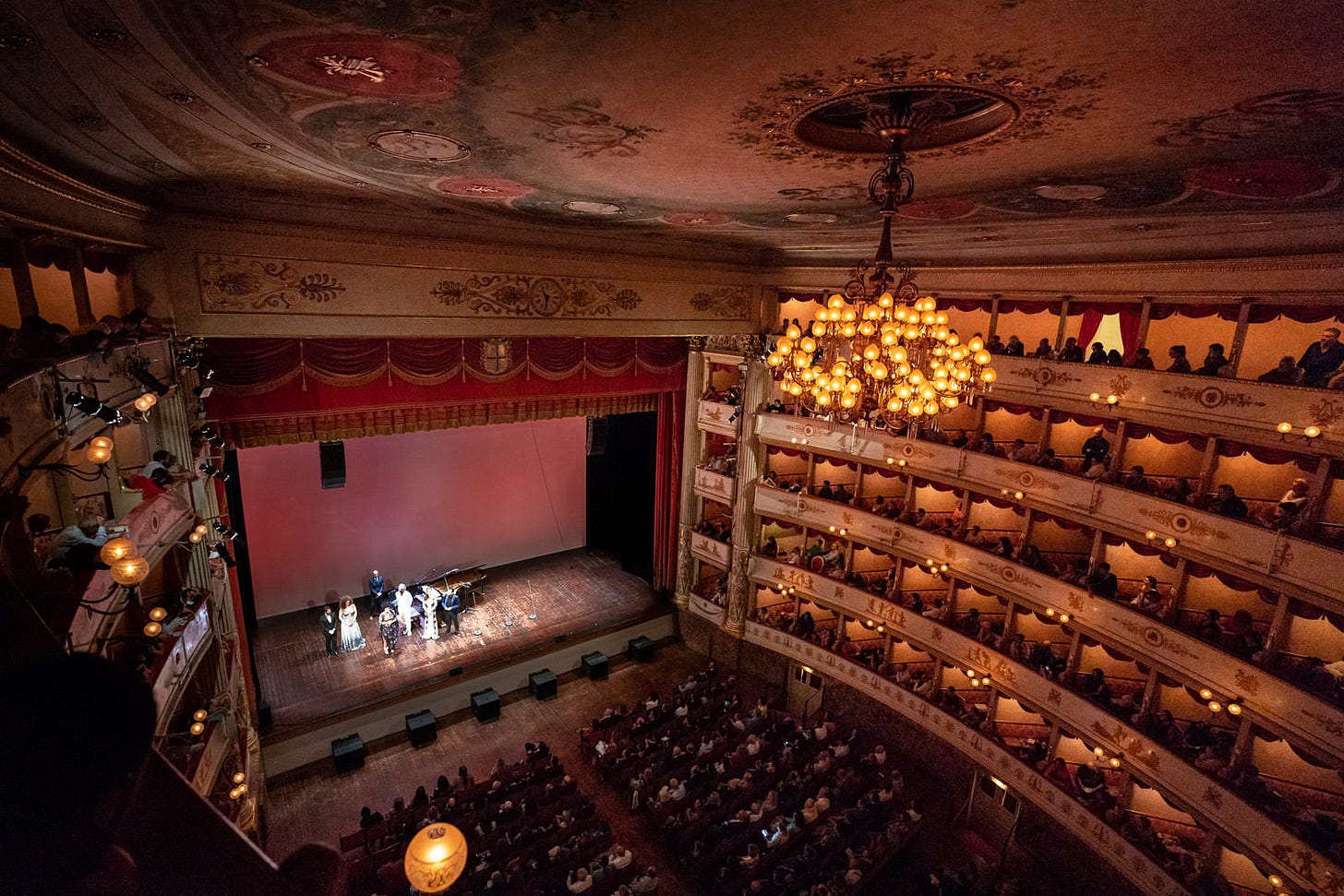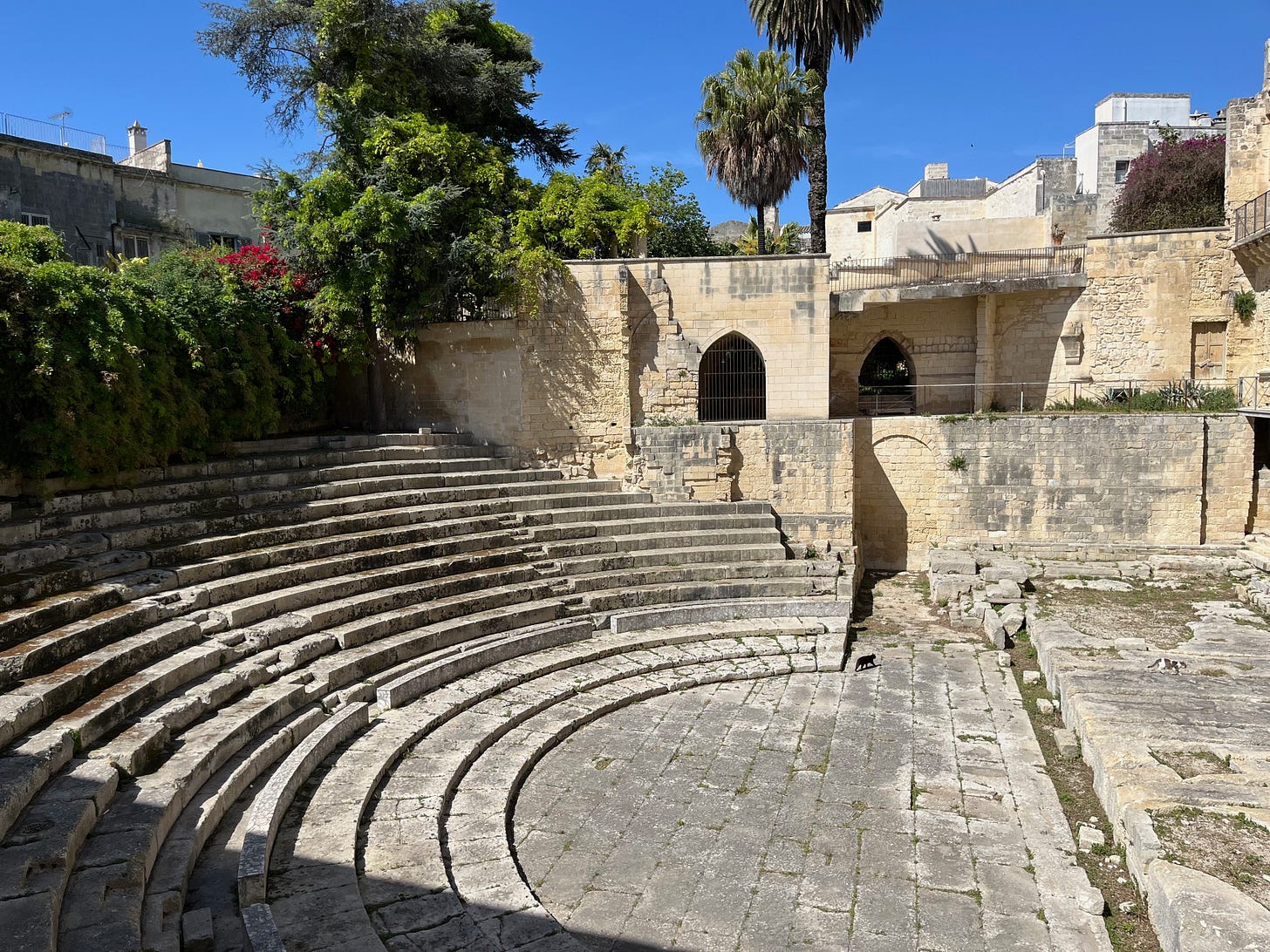The Unpredictability of Fate
How the vision of humanity in Greek tragedy hits close to home. From myths to political themes and family dramas—love, pain, justice, revenge, the role of women, and more.

The brilliance of Sophocles, the sheer humanity of Aeschylus, the truth Euripides wouldn’t sacrifice for fame are trademarks of the value in culture we take for granted. My gratitude goes to all supporters for making this work possible.
I remember like it was yesterday. The occasion for the special outing with my mother was the work of playwright Bertolt Brecht.1 An anti-war play, Mother Courage and Her Children (1941) is set in the 1600s, we saw it in the 1980s—it felt contemporary.
Cocooned within the structure of Teatro Comunale we witnessed the events that took place in Dalarna, spring of 1624. In the midst of the Thirty Years War, a Sergeant and Recruiting Officer sought soldiers for the Swedish campaign in Poland.
Enter Mother Courage on a cart. A series of scenes, freeze frames, some song and music, and a narrator followed. I’d not experienced anything like it before (or since.) Brecht wanted to make the audience think, and that he did.
Modern theater owes a lot to the German playwright and his methods. The value he stored in the medium was as a force for change. Brecht lost his German citizenship under the Nazis in 1933 and was stateless for a while.
Yet, he still had the courage to express his personal voice. He was against the relief of cathartic theater—thinking critically about stuff was important. To him, people should retain the ability to judge, not forget in the midst of emotion.
Audience members were to become part of the scene, yes, but as active members, not passive consumers. So he shocked the audience—minimal props, lighting, and good helpings of spass to break the tension and gestus, gesture with social comment.
Doesn’t the discontinuity and dysfunction remind us of what’s going on in culture today?
Brecht’s form of communication seems to have taken over every aspect of public life. It’s up to us to recognize social realities and not get caught in the drama—whether that be brought by alienation, belligerence, or a mix of both.
Resistance works and I’ll outline how it’s possible to stand up and demand justice, even from the gods.
Reminder: You can get extra insights—in-depth information, ideas, and interviews on the value of culture.
Join the premium list to access new series, topic break-downs, and The Vault.
Brecht’s conception of theater may have broken from the past in its form. But it’s useful to review what came before to rediscover the role this form of art could have in society.
Theater has always been a strongly innate element in Greek culture. Theatrical performance was so important to Greek society that everyone could attend—even women, children and slaves, who were usually excluded from public functions.2
Thus in Greece, theater was intrinsically linked to the civic and moral values of the city-state. Held at specific times of the year, these cultural events played a crucial role in Athenian social and political life.
Among all the works brought to the stage, the role of Greek tragedies was fundamental. Because their subject matter invited spectators to identify with the characters and reflect upon their interactions.
Tragic themes still resonate with contemporary events.
Song of the goat
Tragedy (τραγῳδία) in Greek means ‘song for the goat.’ Which refers to the prize awarded to the winner or to the satyrs of Dionysus, the god of fertility.
Keep reading with a 7-day free trial
Subscribe to On Value in Culture to keep reading this post and get 7 days of free access to the full post archives.



